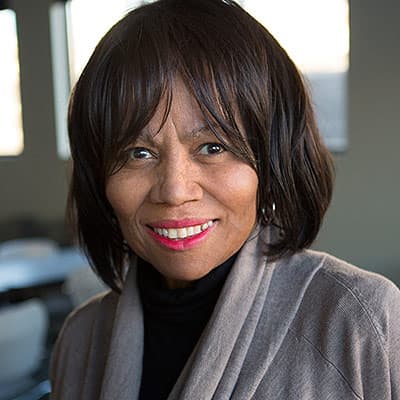Advertisement
Boston's Top Cop Emphasizes Community Policing In The City That's Always Been Home
Resume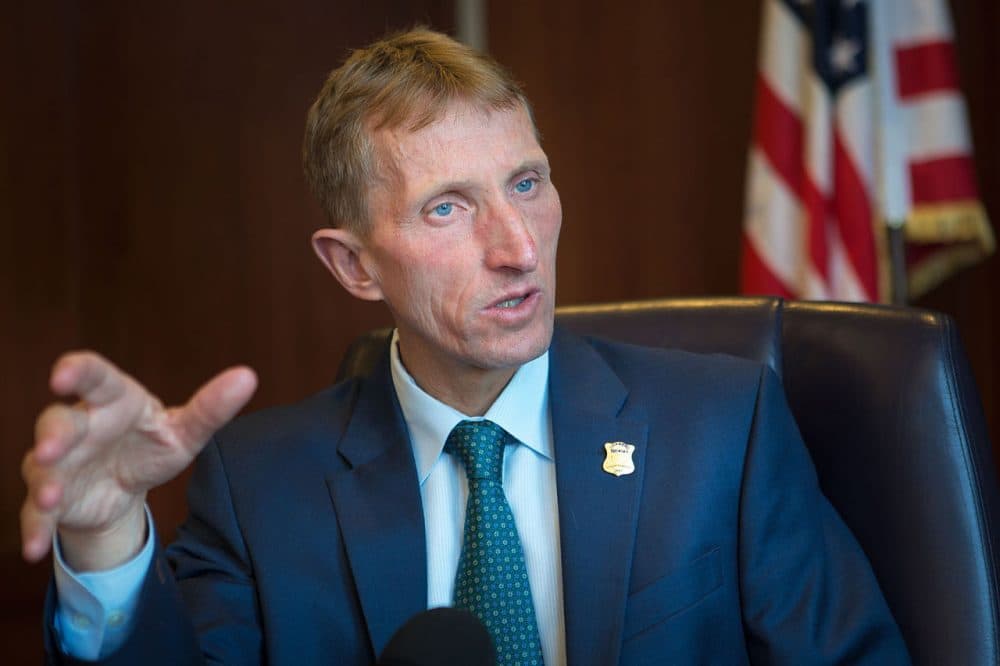
The 41st commissioner of the Boston Police Department credits his upbringing in South Boston for how he handles his job, especially his philosophy on community policing.
William Evans has led the police department for a year and a half. But for many, Evans may be most remembered for his role at the end of the manhunt in Watertown, months before he became interim commissioner.
Evans was the Boston police incident commander on the night officers from several departments opened fire on the boat where Dzhokhar Tsarnaev was hiding. He ordered officers to hold their fire.
"Cops kept coming from all over 'cause they knew we had him in the boat," Evans said. "Well, I didn't want him dead, and also I didn't want the cops hurting each other by the crossfire."
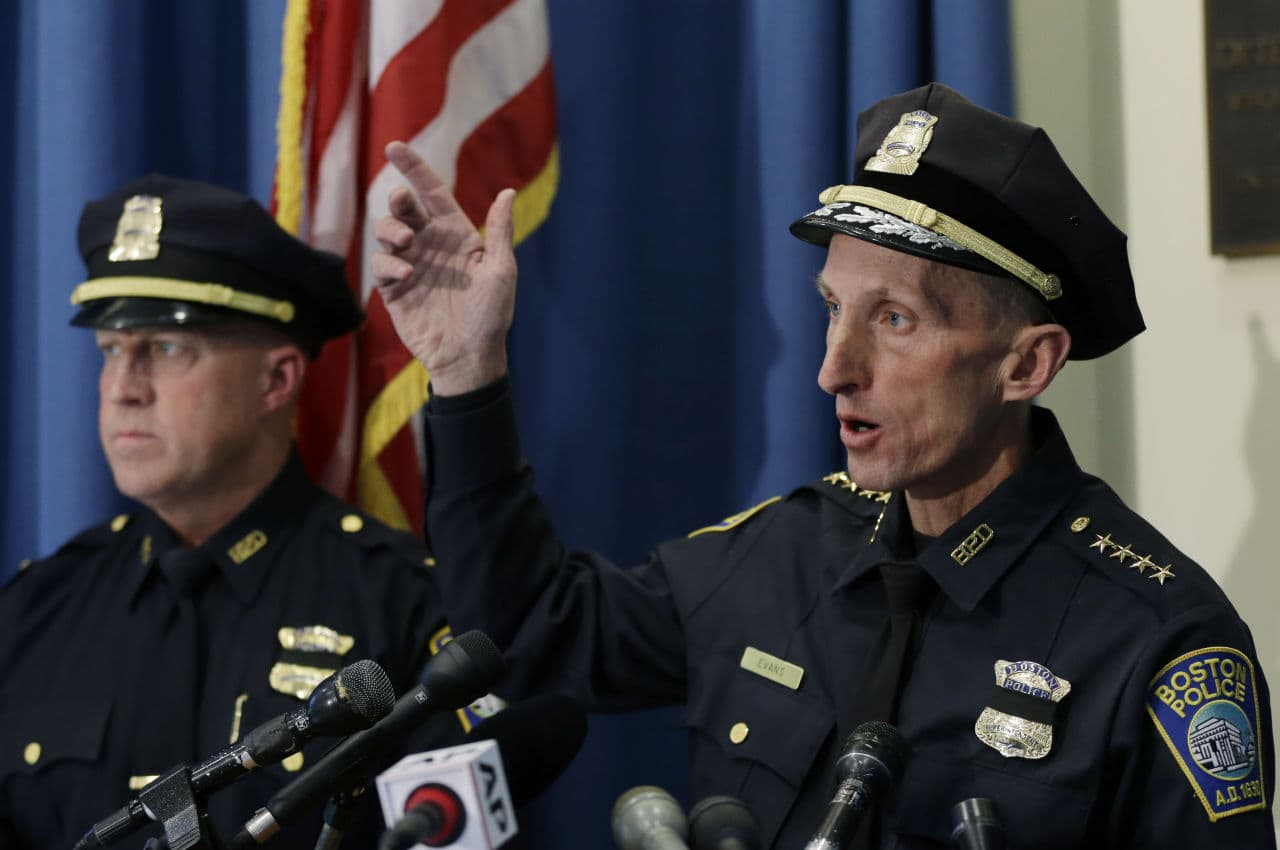
Evans had just finished running the Boston Marathon days earlier, when the bombs went off. It turned out to be the last time he's run Boston. But, he's run 47 marathons in his life.
"It's come to be my medicine. Everything I do, I need my running," he said. "That's the way I seem to deal with a lot of the stress of this job. I've always said as long as I can get my running, I can accomplish anything."

Evans, his wife and three children live in South Boston, in the same neighborhood where he and his five brothers grew up.
"I don't remember my mom, at all," he said. "She got sick when I was very little, and I think I was 3 when she passed away, but I don't have one living memory of her."
There was more tragedy for the Evans family. One of his brothers was killed by a hit-and-run driver. And when Evans was 14, his father died of a heart attack.
"It was just me and my brothers, and we all stuck together," he said.
But Evans spent most of his time hanging out on the street, coming close to getting in trouble, until someone intervened.
"A local priest, Father White, from the Gate of Heaven school, at that point came down and approached my brothers and he said, 'I'm worried about William ... I think he's gonna get in trouble if we don't steer him in the right direction,' " he said. "And he got me into St. Sebastian's [School in Needham]. He said, 'Don't worry about paying. If he wants to go, he's goin'.' "
Evans followed in the footsteps of his older brother, Paul, joining the police department and rising through the ranks.
In January of last year, Mayor Marty Walsh made Evans the permanent commissioner.
"He's inclusive," Walsh said. "He's about building coalitions. He's about tackling the difficult issues that might be in front of him."
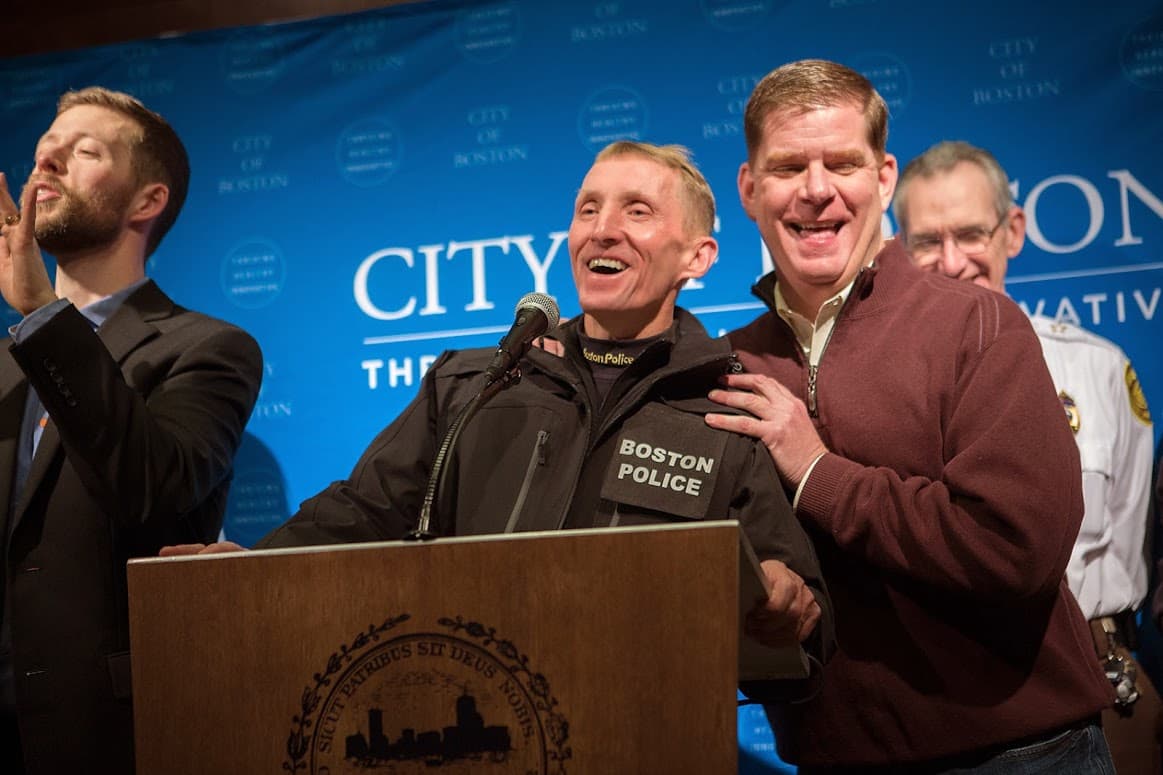
When Black Lives Matter demonstrators protested in Boston last year, Evans was quick to say that some of them were from the Occupy protests. How could he be so sure?
"We know them. I was down there for 70 days," he said. "I know them by name, I've written recommendations for some of them for college. We know them."
When applying for graduate school, Duncan MacKenna, one of the Occupy protesters, asked Evans for a recommendation letter. Evans said, "Oh yes, I'd be happy to,' " MacKenna said.
"He comes from humble origins, and he's really happy to help anyone climb the ladder as he did," MacKenna continued.
It's those humble origins that Evans says have shaped his views about community policing.
"There's no such thing as a bad kid, it's just a kid that needs the right break in life," he said. "Especially in the inner city, they come from broken homes, they come from a lot of social disadvantage, and if someone gives them the right break in life, you can be commissioner someday."
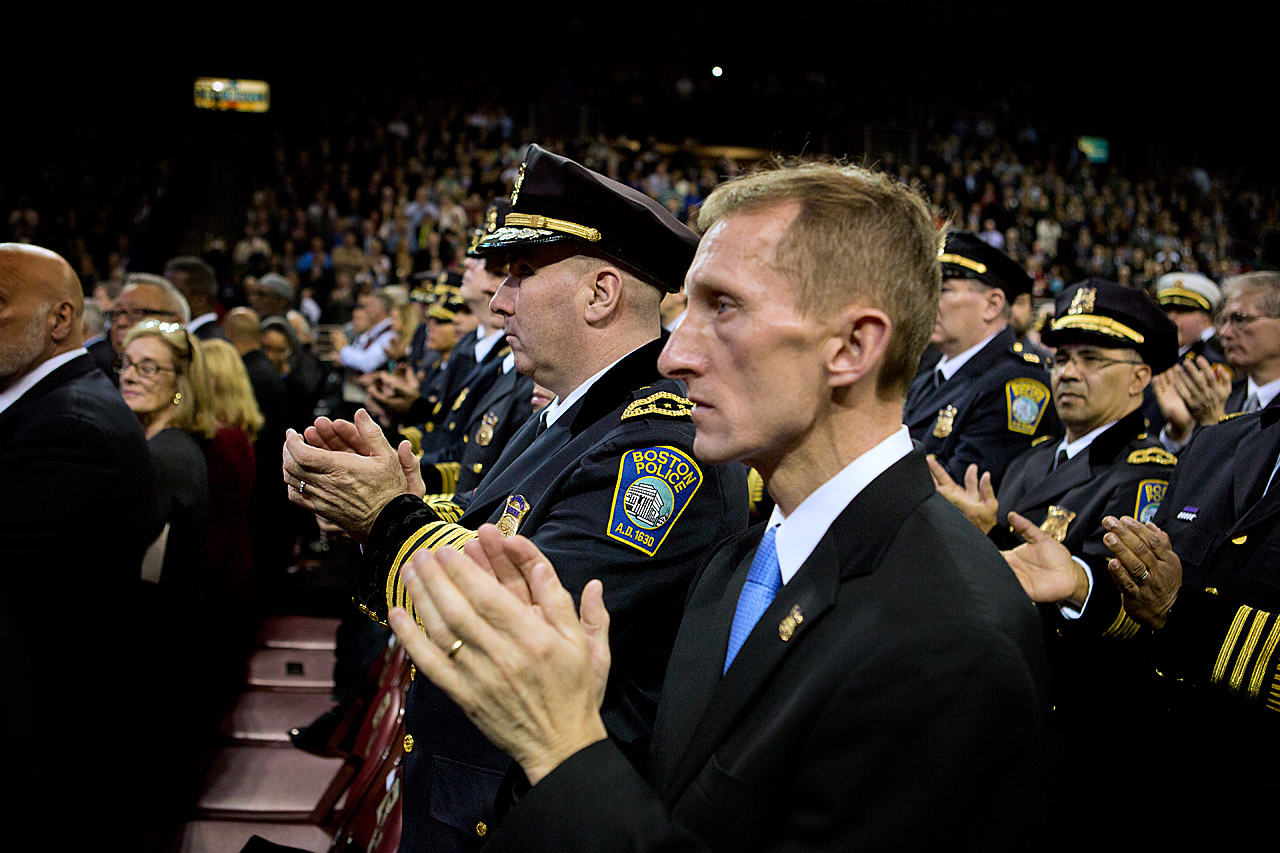
Evans wants to use dialogue to deescalate violence in the city.
"We know how to talk to people. I think it's worked well for us," Evans said. "I think we've learned that that's the best medicine for everything."
Michael Curry, president of the Boston branch of the NAACP, says under Evans' leadership, communication between police and his group has improved.
"I get the impression he wants his legacy to be a commissioner that knows he wants his officers to engage people differently," Curry said. "Whether that will happen, whether that culture will change for some cops who do that I don't know, but I'm anxious and excited to see a commissioner that's willing to have the conversation and willing to demand more of his officers as they engage our communities."
Curry is part of a social justice task force working with Evans to monitor police stops in the city. The task force was set up following a report that showed that blacks and Hispanics are disproportionately observed, interrogated or searched by police.
There are still major issues, however, like diversity. As we previously reported, of the 41 Boston police recruits who graduated from the police academy in June, 32 are white, six are Hispanic, two are black and one is Asian. Two-thirds of Boston's uniformed police force are white in a city where 53 percent of residents are people of color.
Going forward, Evans says his priorities are reducing the number of guns on the street and improving diversity in the ranks of the department.
Evans is the second member of his family to hold the title of commissioner. It's the same job his brother Paul held 20 years ago.
"The day I got sworn in as commissioner, the thing that really stuck in my mind, I just wish my father was around to see it," William Evans said. "He was left with his boys. He tried his hardest to bring us up, and I'm sure he made that commitment to my mom. But, to think that two of them went on to become police commissioner, and nobody every really got into trouble is a testament to the way he brought up his sons."
This segment aired on July 21, 2015.
